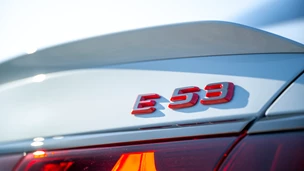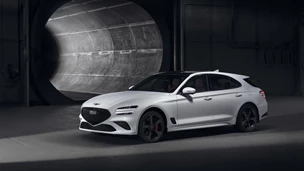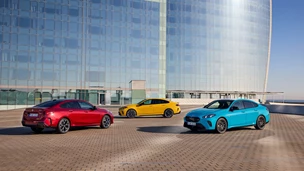If you like, you can have a Nissan Note with 1.4- or 1.6-litre petrol engines, but given the choice I would take the 1.5 dCi turbo diesel as fitted to the test car every time. It was especially in my favour as I neared the 500-mile mark and I was finally forced to stop for a refill and noted that the economy mode on the trip computer was claiming that I had achieved 62.4mpg on a wide variety of roads, including about 150 miles of motorway.The Note has a lot of frontal area to push against the oncoming wind, and even the diesel is by no means a high-economy, low-CO2 special, and I was more than impressed by the figure. As the doctor remarked to the man who couldn't pronounce the letters f, n or t, "You can't say fairer than that."Well, as it turns out, you can, because I noted the number of miles travelled and the amount of fuel I'd put in, and realised that they implied fuel consumption of 55.3mpg, which is a very different thing from 62.4mpg. But it's still pretty good, especially since I was making no attempt whatever to drive economically. Despite my concern that the trip computer was telling a load of porkies, the 1.5 dCi remains my favourite engine in the range.And not just for that reason. It's also reasonably quiet, if always obviously diesely, cruising is pleasant enough (not least because the gearing is suitably high, which is emphatically not the case in the 1.6 petrol version). Performance is adequate: nothing more can be said, nothing more is required from a car which will predominantly be required to provide effective family transport rather than compete against hot hatches.Similarly, the Note's handling is as good as it needs to be (there isn't enough power to get into trouble unless you are really determined to do this) and the ride is pleasant enough.If it seems as though I'm damning the car with faint praise, I really don't mean to. All of these elements contribute to a very high opinion of the car, and they are further backed up by the extraordinary amount of space Nissan offers to rear passengers.Luggage volume seems at first sight to be only moderate at 280 litres, but you do have the benefit of the Flexi-Board system which consists of two removable sections - covered in carpet on one side and waterproof plastic on the other - which can be mounted either vertically or horizontally depending on your needs. And if you fold down the rear seats and load the Note to roof level, luggage capacity increases to a very respectable 1332 litres.The only thing I really don't like about the Note is the rear window design, which has a terribly effect on visibility, but I suspect we're going to have to wait for a radical change in what is considered acceptable among car designers before anything is done about this.In the meantime, I'm concerned about the safety aspects (not only of this car but of the many others which have the same failing), and while I'm on the subject of safety it's worth beaing in mind that the Note did not perform very well in the Euro NCAP crash test programme. It may do worse now, since only the range-topping Tekna is fitted with ESP.The Tekna also gets the Nissan Connect system as standard. The entry-level Visia [short pause to wonder why Nissan persists with these daft names] doesn't under any circumstances, and the Acenta tested here can be ordered with it for an extra £400. Money well spent, I say.Nissan Connect is a package which includes satellite navigation, Bluetooth connectivity and a USB port for your music storage device; that device can be stored out of sight in a storage compartment on top of the dashboard and operated via the audio system, which is very clever, and although the satnav screen is small and the graphics aren't great, the whole arrangement is definitely worth the investment. Engine 1461 cc, 4 cylinders Power 86 bhp @3750 rpm Torque 148 ib/ft @1900 rpm Transmission 5 speed manual Fuel/CO2 62.8 mpg / 119 g/km Acceleration 0-62mph: 13.3sec Top speed 102 mph Price From £13646.00 approx Release date 09/01/2009

Our Rating



